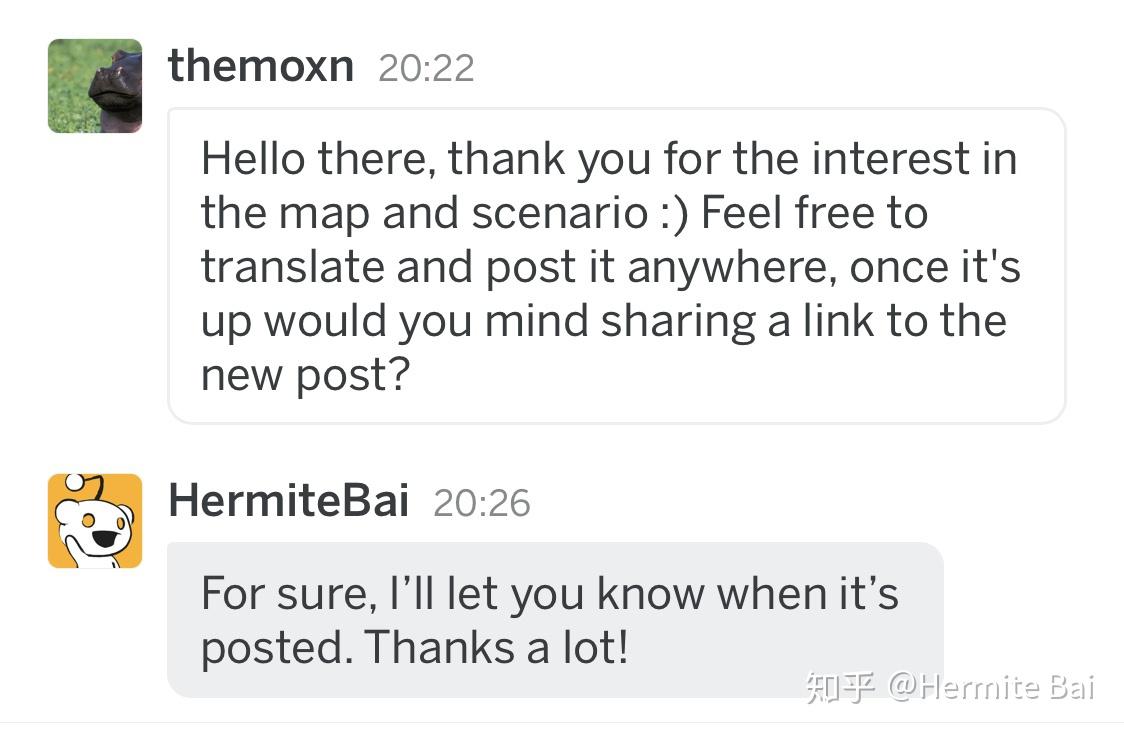本文翻译自https:www.deviantart.commoxnartRoma-Invicta-The-Heroi...

本文翻译自 https://www.deviantart.com/moxn/art/Roma-Invicta-The-Heroic-Age-750615340?comment=1%3A750615340%3A4757233109 著作权归原作者所有,翻译内容和注释著作权归本人所有。欢迎在保留原文链接基础上的非商业用途的转载。
注释的考证主要基于维基百科 (wikipedia.org) 的中文、英文和拉丁文页面。
Special thanks to themoxn@reddit for the amazing scenario and map.
Authorization for translation and sharing from the author:


本文是基于历史事件的虚构场景,与任何实际存在的人物或团体没有任何现实层面上的联系。为方便起见,以上声明只放在这个系列的第一篇中,所声明一切内容对本系列的所有发布文章有效。本人非专业历史或宗教学者,亦非专业翻译,如有任何事实性的问题和错误欢迎专业人士指正。
After nearly a century of calamity and civil war, Augustus Caesar successfully took the throne as the first Roman Emperor and brought about decades of unprecedented peace. However, his reign could not last forever, and in AD 14 (767 AUC) the Emperor shuffled off his mortal coil. While all of Rome gathered around his mausoleum, their cries were interrupted by the appearance of Mercury himself. The divine messenger announced that the revered Caesar had ascended into the pantheon of gods and would continue to preside over his subjects from the afterlife. Mourning turned to celebration, and a new star appeared in the sky to mark the occasion. A new Heroic Age had begun. Not since the Trojan war had the gods taken an active role in the world, at least in the West.
在将近一个世纪的灾难和内战之后,奥古斯都·凯撒 [1] 成功夺取了政权从而成为了最初的罗马皇帝,并给帝国带来了数十年前所未见的和平 [2]。然而他的统治注定无法永远延续下去,于是在公元 14 年 (罗马建城历 [3] 767 年) ,皇帝从俗世的纷扰中得到了解脱 [4]。当全帝国的臣民聚集在皇帝的陵园 [5] 时,他们的哭泣却被墨丘利 [6] 的突然出现而打断。神使向帝国公民宣告,他们尊敬的凯撒 [7] 已升入诸神的行列 [8] 并将继续在来世主宰他的臣民和土地。对皇帝的哀悼于是突然转变为了庆典,在天空上出现的一颗新星也和此情此景遥相呼应。自特洛伊战争 [9] 以来诸神就不再积极地参与到俗世 (至少是在西方) 的事务中,而这一天开启了罗马帝国新的英雄时代。
[0] 本文注释中拉丁语的部分会服从古典拉丁语的习惯,用v代替元音的u,以及用i代替辅音的j,人名倾向于直接用原语言在括号中标出。
[1] 奥古斯都·凯撒 (Avgvstvs Caesar),即屋大维 (Octavivs), 罗马帝国初代元首 (princeps) 在前罗马终身狄克推多(dictator)尤里乌斯·恺撒 (Iulius Caesar) 在元老院遇刺身亡后成为后三巨头之一,在先后打败布鲁图斯带领的共和派、凯撒的副将安东尼乌斯 (Marcus Antonius) 和克里奥佩特拉 (Κλεοπάτρα Φιλοπάτωρ) 之后成为了帝国的主宰,并开创了罗马帝国的元首制时期。
[2] 即所谓的罗马治下的和平(Pax Romana)
[3] Ab vrbe condita 或缩写为 AUC,通常认为开始自公元前753年。
[4] 原文 shuffled off his mortal coil 出自莎士比亚 (William Shakespeare) 的《哈姆雷特》(Hamlet) 的经典片段 To be, or not to be。
[5] 指位于现代意大利罗马市的奥古斯都陵墓
[6] 墨丘利 (Mercvry), 罗马神话中的神使,通常认为和希腊神话中的赫尔墨斯 (ʽἙρμῆς) 是同一存在。
[7] 源自罗马终身狄克推多(dictator)尤里乌斯·恺撒 (Iulius Caesar),引申义即为罗马帝国皇帝。
[8] Pantheon of gods 来自希腊语的 πάνθεον 意为万神殿,引申为神系。
[9] 以争夺美女海伦 (Ἑλένη) 为中心的,发生在以阿伽门农王(Ἀγαμέμνων) 和阿喀琉斯 (Ἀχιλλεύς) 为首的希腊联合军和以帕里斯 (Πάρις) 和赫克托尔 (Έκτορας) 为首的特洛伊城之间的十年攻防战。罗马人认为其起源于特洛伊战争后带领族人逃难至亚平宁搬到拉丁姆 (Latium) 地区的埃涅阿斯 (Aeneas)。
Drusus, known to history as Drusus the Lame due to his limp following a fall from his horse, soon took the reigns of the Empire. Campaigns into Germania and Marcomannia continued, and were finalized under his own son and successor, Emperor Germanicus. By the end of the Julio-Claudian dynasty in AD 95 (848 AUC), Imperial borders stretched from the Elbe river in the north, the Saharan wastes to the south, and the Euphrates river to the east. The most important changes to come, however, were not from the various conquests, but from the internal reforms put into place by Emperor Vitus, who emerged victorious in the ensuing civil wars of the early second century and established a new dynasty of his own.
德鲁苏斯 (Drusus) [10] (因其不幸从战马上摔落的经历在历史上被称作瘸腿的德鲁苏斯 [11]) 在此后迅速地接过了帝国的统治,并继续发起了对日耳曼尼亚 [12] 和马克曼尼亚 [13] 地区的征服。这场征服行动最终由他的儿子以及继承人 ——日尔曼尼库斯皇帝 [14] 完成。在儒略-克劳狄王朝末年的公元 95 年 (罗马建城历 848 年),帝国的领土北至易北河岸南至撒哈拉的荒漠,而在东方也推进到了幼发拉底河流域。
然而帝国最重要的转变并非来自这一系列的对外征服,而是在于公元二世纪初的内战中获得胜利并开创了自己的王朝的维图斯皇帝 [15] 的内政改革。
[10] 即 Nero Clavdivs Drvsvs, 奥古斯都的妻子莉薇娅 (Livia Drvsa Avgvsta) 的儿子,他是第一个率军占领日耳曼尼亚到达易北河的罗马将领。
[11] 在真实的历史中德鲁苏斯罗马后即伤重不治而死,他的征服成果在之后的条顿堡森林战役 (Battle of Teutoburg Forest) 中失去,并且征服日耳曼尼亚的计划被帝国的第二任元首提比略 (Tiberivs Clavdivs Nero) 放弃。此处作者虚构德鲁苏斯没有英年早逝,因此完成了对大日耳曼地区的政府并继承了皇位。
[12] Germania, 大致是今天的德国。
[13] Marcomannia, 大致是今天的捷克和斯洛伐克地区。
[14] 即 Germanicvs Ivlivs Caesar。
[15] 作者虚构的罗马皇帝,因为历史线从此已经严重偏离现实历史,所以以后的罗马皇帝不再专门注释。
Among Vitus' reforms were a restructuring of the military, shifting the role of soldier's pay from their generals to the imperial throne. This also necessitated tax reform and the end of private tax farmers. Since soldiers also demanded sizable land grants upon retirement, this also encouraged the Empire to seek out new conquests. By this time, the rekindled magical arts coming out of the various temples and academies also began to play a larger role in outward expansion. Cultists of Jupiter could invoke his powers to control the weather in their armies' favor, while followers of Apollo could help heal and mend wounds. Neptune was frequently called upon to protect the navy, and Osiris saw increasing popularity for those hoping to give their loved ones an easier journey to the underworld. Magic at this point was almost entirely religious in nature, with little interest in discovering alternate sources.
在维图斯皇帝的改革中的一项即为对军队的重组,意图将向士兵发放酬劳的职责从他们的将军那里转移到了帝国政府。这一项改革同时导致了税法改革的必要性以及私人包税制度的终结。由于士兵们对于退役后合理大小的土地赠予[16]的要求,帝国也被鼓励去开启新的征服行动。在这一段时间里,很多从各种神庙和学院中死灰复燃的神秘力量也在对外征服中起到了更大的作用。朱庇特[17]的信徒们能够唤起这位神明的能力来天气变得对己方有利,阿波罗[18]的追随者则能治愈伤口, 尼普顿[19]常常被召唤以庇佑海军,奥西里斯[20]则在那些希望他们爱的人能够更安详地走进冥界的那些人之中备受欢迎。在这个时期,神秘从本质上几乎完全是宗教性质的,人们对于去探索发现这种力量的其他来源的兴趣寥寥无几。
[16] 军团士兵(Legionarivs) 通常会在退役后得到一笔丰厚的退役金,以及(通常在殖民城市(colonia))得到一块土地。
[17] Ivppiter, 也称 Iove, 罗马神话中的神王、天神和雷神,对应希腊神话中的宙斯(Ζεύς)。
[18] Apollō / Απόλλων, 在希腊罗马神话中同名,同为太阳神、文艺之神和医术之神
[19] Neptvnvs, 罗马神话中的海神,对应希腊神话中的波塞冬(Ποσειδών)。
[20] Osiris, 埃及神话中的冥神。
The most formidable foe to the Empire continued to be the various dynasties of Persia. Rome was not the only civilization revisited by the gods, and Ahura Mazda, Mithra, Anahita, and others became more involved in the escalating wars. More and more powerful magic continued to be discovered and utilized in a theological arms race, which devastated the lands of Mesopotamia, Syria, Armenia, and beyond. It would not be until the reign of Emperor Valentine in AD 170 (923 AUC) that Rome would finally gain an edge, and even then victory only came through the help of new amazon and centaur auxiliaries from the north. His lover, main general, and successor would take on the royal name Parthicus in honor of this achievement.
同往常一样,帝国最可怕的对手依然是波斯帝国的诸多王朝。罗马并不是唯一一个经历诸神再临的文明,所以阿胡拉马自达[21]、密特拉[22]、阿纳西塔[23]以及其他的神明也渐渐参与到了这场逐渐升级的战争中。越来越多的强大法术在这场神力的军备竞赛中被发现和利用,这也导致了美索不达米亚、叙利亚、亚美尼亚甚至更远地方土地的衰败。
直到在瓦伦丁皇帝统治期间的公元 170 年(罗马建城历 923 年)罗马帝国终于在拉锯中获取了一些优势,在这种情况下也在亚马逊[24]和半人马[25]辅助军团[26]的帮助下才获得胜利。而为了表彰这个成就,皇帝的情人同时也是主将和继承者的这位将军获得了帕提库斯[27]的王号。
[21] Ahura Mazda, 波斯琐罗雅兹德教神话中的创世神
[22] Mitras ( ),古印度-伊朗神话中的契约神,波斯人认为其是真理和忠诚的象征,而希腊人则将其等同于太阳神赫利俄斯(Ήλιος)。
[23] Anahita, 古印欧神话中的水神,也被认为和美索不达米亚神话中的伊南那-伊什塔尔(Inanna-Ishtar)女神有关。
[24] Ἀμαζόνες, 希腊神话中由女战士组成的部族,历史学家希罗多德 (Ἡρόδοτος) 认为她们可能来自于黑海沿岸的斯基泰(Σκυθική)地区。
[25] 有人认为实际上是来自中亚地区的游牧民。
[26] 由行省民组成的辅助罗马军团战斗的部队。
[27] 一个地区的征服者将被元老院授予相应的荣誉称号,如打败迦太基(Carthago)的大西庇阿(Publivs Cornelivs Scipio Africanvs) 的阿非利加努斯, 前文所述的德鲁苏斯的日耳曼尼库斯,还有此处的因为征服帕提亚(Parthian / )得到的帕提库斯。
下一部分:
Hermite Bai:【精罗狂喜】【转载+原创译注】Roma Invicta The Heroic Age 【2】zhuanlan.zhihu.com









如果认为本文对您有所帮助请赞助本站